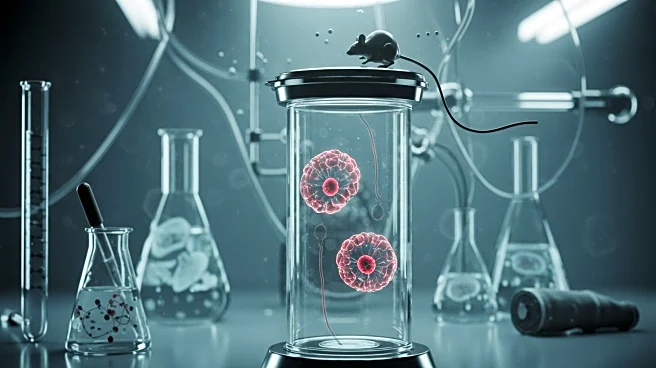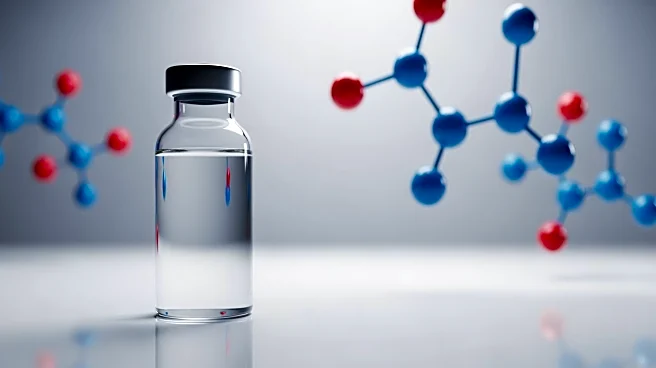What is the story about?
What's Happening?
Chinese scientists have successfully transformed human stem cells into dopamine-producing brain cells and transplanted them into mice. This innovative approach has shown promising results in reducing depressive behaviors and enhancing pleasure in mice models of depression. The engineered neuron-like cells, when grafted into the mice, helped alleviate symptoms such as anxiety and resignation while increasing feelings of enjoyment. The study, published in the journal Cell Stem Cell, provides proof-of-concept evidence for using cell therapy to treat psychiatric disorders by reconstructing dysfunctional neural circuits. Major depressive disorder is a significant global health issue, affecting millions worldwide, and this development could pave the way for new therapeutic strategies.
Why It's Important?
The research holds significant implications for the treatment of neuropsychiatric disorders, particularly major depressive disorder, which is a leading contributor to global disease burden. By directly targeting and repairing brain circuits involved in mood regulation, this cell therapy approach could offer a novel treatment for individuals suffering from treatment-resistant depression. This condition is characterized by symptoms such as anhedonia, where patients are unable to experience pleasure from activities they once enjoyed. The ability to produce and release dopamine, a neurotransmitter crucial for motivation and reward, could revolutionize how depression and similar disorders are managed, potentially improving the quality of life for many.
What's Next?
Further research and clinical trials are likely needed to explore the feasibility and safety of this technique in humans. If successful, this approach could lead to the development of new cell-based therapies for depression and other mood disorders. Researchers may also investigate the potential for this technique to address other neuropsychiatric conditions by reconstructing specific neural circuits. The scientific community and healthcare industry will be closely monitoring these developments, as they could significantly impact future treatment protocols and mental health care strategies.
Beyond the Headlines
This advancement raises ethical considerations regarding the use of human stem cells and the implications of altering brain function through cell therapy. The long-term effects and potential risks of such treatments need careful evaluation. Additionally, this research highlights the growing intersection of biotechnology and mental health, prompting discussions on the regulation and accessibility of such therapies.














